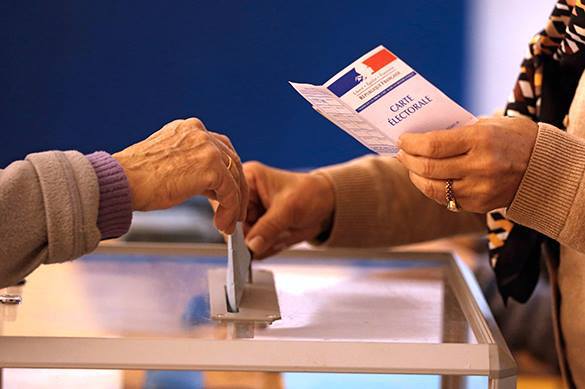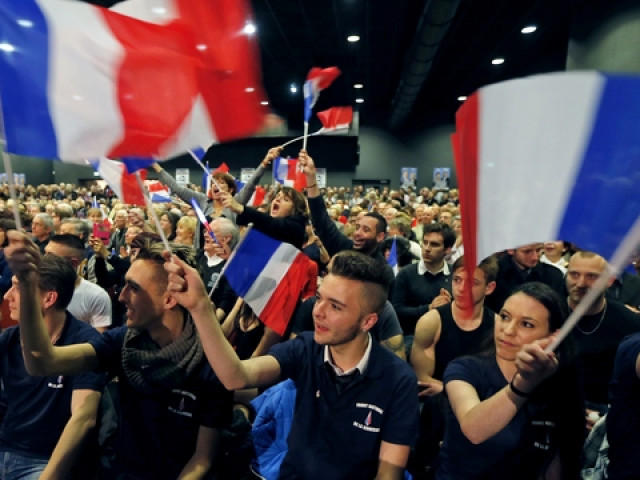There is less than two weeks left before the second round of presidential elections France. On May 7, the centrist independent Emmanuel Macron and French nationalist Maríne Le Pen will fight for the supreme post in the country. Opinion polls predict Macron's inevitable victory: according to forecasts, the pro-European candidate can count on 60-61% of the vote in the second round. But can we be sure of Le Pen's defeat? The head of the Paris bureau of the German Heinrich Böll Foundation, Jens Althoff, does not exclude any scenario.
"All the forecasts indicate that Macron will win in the second round. But, if there are only two candidates, everything is possible. As we have seen in the case of Brexit and the victory of Donald Trump in the US. Still much can happen: possible new terrorist attacks will play into Le Pen's hands. In addition, a very tough election struggle will begin now, in which Le Pen, tempered in the toughest political battles, will oppose the newcomer Emmanuel Macron. The latter is an ideal rival for Marine Le Pen, as it embodies the image of the enemy of the National Front: a cosmopolitan, a pro-European supporter of liberal values and economic liberalism," Althoff said in an interview with the Tagesspiegel.

"Le Pen will try to expose him in a negative light as a typical representative of the Paris elite. Macron now has no right to make mistakes. His behavior on Sunday evening following the results of the first round is not a good start. Instead of starting to prepare for a fight with Le Pen with utmost seriousness and determination, he, accompanied by an impressive escort, almost like presidential, went to celebrate his victory in private to an exquisite Parisian restaurant. There is another threat as well: Monday after the election is a non-working day, due to which many French people will use long weekends for traveling. If as a result of public opinion polls, Macron will be seen as an unequivocal winner, many voters may decide that they can "skip" the election. But Macron has not yet won," the head of the Paris office of the Heinrich Böll Foundation summed up.
The expert of the German Foreign Policy Society, political scientist Claire Demesmay, speaking with the German television channel n-tv, warned about another real danger for the political self-realization of Emmanuel Macron. The fact is that the French parliamentary elections will be held in June, and the newly-made president, if Macron becomes him, must be able to organize his own political movement for full participation in the elections. "It will be a decisive issue whether he will succeed. Macron said that his En Marche! movement will nominate candidates. But so far only a part of the names is known. Many of these candidates are inexperienced, half of them are from civil society, the other half from politics. It will be difficult to get a majority in the National Assembly with such candidates, although, quite possible, given the current dynamics. If Macron succeeds in this, then the next question is how he will ensure the unity of this majority within the next five years. Macron plans to undertake complex reforms that will inevitably cause opposition. If he needs to coordinate every step on the way to implementing the planned reforms during the negotiations with deputies, he will not become a strong president," Claire Demesmay notes.

A similar situation will also arise if Marine Le Pen becomes the next president of France. It can hardly be expected that the French ultra-right will be able to get a parliamentary majority in the June elections. Accordingly, the likelihood that Le Pen will become a strong president is even lower than in the case of Macron. Today, France is polarized, and its society is divided, as never before. So, none of the candidates in case of victory can hope for a quiet presidency: both potential president will face the threat of a crisis of powers.






